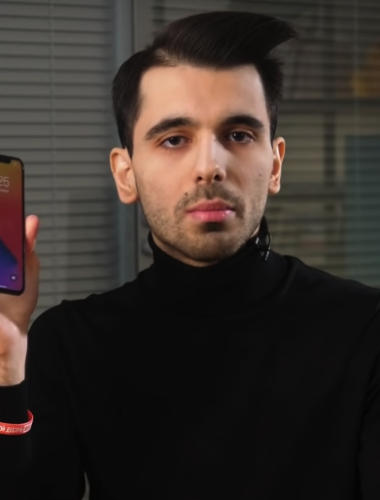Three more of Aleksei Navalny’s supporters, charged with being members of an ‘extremist group’, are political prisoners
Vadim Ostanin and Daniel Kholodny are in custody, while Rustem Muliukov is under house arrest
The human rights project ‘Political Prisoners. Memorial,’ in accordance with international standards, considers Rustem Muliukov, Vadim Ostanin and Daniel Kholodny political prisoners and Egor Butakov, Violetta Grudina, Aleksei Vorsin, Roman Rubanov, Zakhar Sarapulov, Ksenia Fadeeva, Leonid Fateev and Oksana Shkolina victims of unlawful, politically motivated prosecution. We consider their prosecutions to be a part of a repressive campaign intended to completely eliminate all extra-parliamentary political opposition in Russia.
We demand the immediate release of all political prisoners in the case of the Navalny ‘extremist group’: Rustem Muliukov, Vadim Ostanin, Daniel Kholodny, Liliya Chanysheva, Pavel Zelensky and Aleksei Navalny himself. We also demand that the criminal prosecutions of defendants in the case who remain at liberty be terminated.
What are the charges against Navalny’s supporters?
In September 2021 it became known that a criminal investigation had been opened against Aleksei Navalny and his supporters for allegedly establishing, and participating in, an extremist group and creating an extremist group using an official position (Article 282.1, Parts 1, 2 & 3, of the Russian Criminal Code). Since then, there have been regular reports of searches and arrests of former staff of the Anti-Corruption Centre and other structures formerly run by Navalny.
For example, on 28 December 2021 it became known that a whole series of arrests had been made of former employees and volunteers of Navalny’s headquarters all over Russia. Those detained included Vadim Ostanin in Biisk (Altai region), Zakhar Sarapulov in Irkutsk, Kseniya Fadeeva and Andrei Fateev in Tomsk, and Egor Butakov, Elizaveta Bychkova and Oksana Shkolina in Arkhangelsk. With the exception of Fateev, who managed to go abroad, all those detained were released on bail.
In March 2022, after Russia’s full-scale invasion of Ukraine had already started, a new round of repressions aimed at activists began. In Moscow, Daniel Kholodny, former technical director of Navalny LIVE, was remanded in custody and, in Biisk, Vadim Ostanin, who had previously been banned from taking part in certain activities pending trial, was also remanded in custody.
In the summer of 2022 we learned that Rustem Muliukov, a former volunteer for Navalny’s headquarters in Ufa, was under house arrest. Muliukov had been charged in a criminal case launched against Navalny supporters back in September 2021, but had remained at liberty for a long time. In October 2021 Memorial Human Rights Centre included him in a list of persons who were being prosecuted but remained at liberty, mistakenly believing he had left Russia.
Finally, we know that a number of Navalny associates who left Russia, including Violetta Grudina, Aleksei Vorsin and Roman Rubanov, have been charged in absentia as part of this criminal case.
Why do we consider Muliukov, Ostanin and Kholody political prisoners?
We believe that the criminal cases launched against employees and volunteers of Aleksei Navalny’s organisations have been aimed solely at forcing Navalny and his associates to abandon their perfectly legitimate political and social activities.
The claim that Navalny’s organisations were allegedly part of some ‘extremist group’ is absurd. Memorial Human Rights Centre condemned the June 2021 decision to declare Navalny’s organisations extremist, noting that ‘there is nothing in the case materials that are publicly available, nor in the actions of these associations themselves, that would indicate any “extremist” activities on their part.’ We take the same view.
Navalny and his associates are not extremists, even in terms of current anti-extremism legislation, which has become a key instrument of political repression in Russia. The available materials of the criminal case unambiguously testify to the innocence of the accused.
A recognition of Vadim Ostanin, Daniel Kholodny, and Rustem Muliukov as political prisoners follows automatically from our assessment of the criminal case.
More information about this case and the position of the Human Rights Project is available on our website.
Recognition of an individual as a political prisoner does not imply the ‘Political Prisoners. Memorial’ human rights project agrees with, or approves of, their views, statements, or actions.
How can you help?
Ordinary mail (must be in Russian) can be sent to the defendants at the following addresses:
In Russian:
125130, г. Москва, ул. Выборгская, д. 20, ФКУ СИЗО-5 УФСИН России по Москве, Останину Вадиму Валерьевичу, 1976 г. р.
125130, г. Москва, ул. Выборгская, д. 20, ФКУ СИЗО-5 УФСИН России по Москве, Холодному Даниэлю, 1997 г. р.
In English:
Vadim Valerievich Ostanin (born 1976), Remand Prison No. 5, Federal Penitentiary Service of Russia for Moscow city, 20 Vyborgskaya Street, Moscow, Russia 125130
Daniel Kholodny (born 1997), Remand Prison No. 5, Federal Penitentiary Service of Russia for Moscow city, 20 Vyborgskaya Street, Moscow, Russia 125130
Electronic mail can also be sent for a fee via the FederalPenitentiaryService-Letter system or for free via the Rosuznik project that is run by volunteers and funded by donations.
Here you can donate to support all political prisoners.
